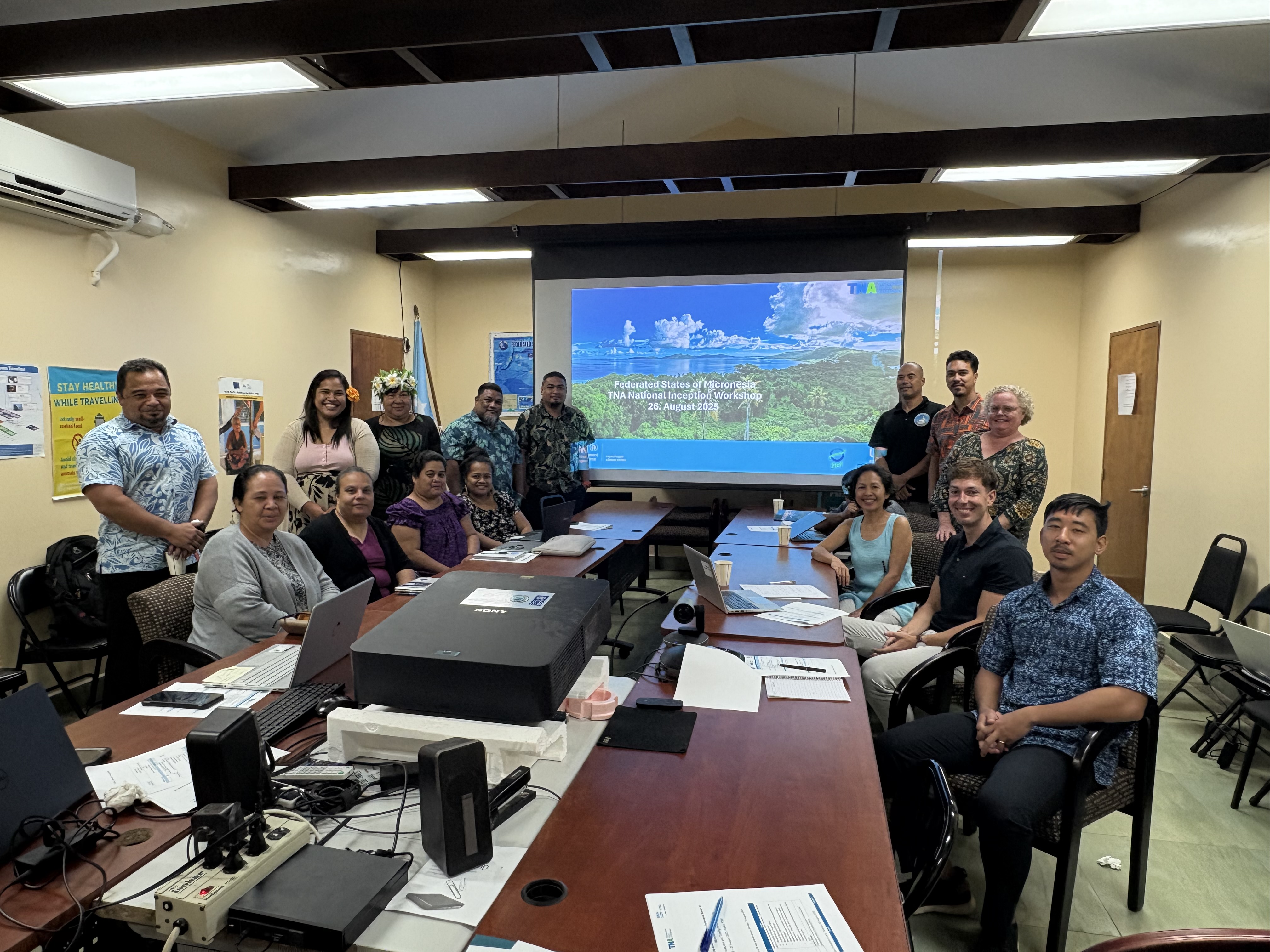The Federated States of Micronesia (FSM) is a Pacific island nation in the western Pacific Ocean, comprised of 607 islands across four states – Yap, Chuuk, Pohnpei, and Kosrae. As a Small Island Developing State (SIDS), the FSM are extremely vulnerable to the negative impacts of climate change, especially its implications on rising sea levels and devastating natural disasters, threatening the very existence of the country.
While SIDS contribute less than 1% of global greenhouse gas emissions they have the most to lose to the climate crisis. Between 1970 and 2020, SIDS lost $153 billion due to weather and climate-related disasters – more than ten times their average GDP.
The expected impacts of climate change on FSM are profound and multifaceted. The majority of Micronesians rely on subsistence farming and fishing for their livelihoods. Rising sea levels threaten to inundate coastal areas, displacing communities and destroying critical infrastructure.
FSM’s freshwater supply is at also risk from saltwater intrusion, exacerbating the already existing water scarcity. FSM also faces increased frequency and intensity of extreme weather events, such as typhoons, which endanger lives, damage properties, and disrupt the economy.
The country states adaptation as a key priority in its NDC, striving to benefit from synergies and co-benefits of adaptation and mitigation options. To further enhance FSM’s sustainable and climate resilient development pathways, FSM launched its first Technology Needs Assessment in 2025.
The TNA project aims to create a national climate technology framework for sustainable socio-economic development in FSM. This will be accomplished through a comprehensive and technology-specific analysis of the actions necessary to secure investment in the priority sectors of energy, waste, agriculture and water. The project is overall coordinated by FSM’s Department of Environment, Climate Change and Emergency Management and implemented by the UNEP Copenhagen Climate Centre.

FSM selected the energy and agriculture (food security) sectors for mitigation, and the health and water sector for adaptation, respectively. As a next step, the TNA process will identify and analyse the relevant climate technologies within these sectors.
To officially initiate the project, a national kick-off event was held in August, 2025 in the capital Palikir on the island of Pohnpei. The workshop brought together key stakeholders from government agencies, national and international development agencies, as well as private sector and academia.
FSM and other SIDS have committed to ambitious climate targets in their NDCs, with FSM committing to an unconditional 28% reduction in greenhouse gas emissions (on 2000 levels) and a 35% reduction conditional on external support. However to meet their targets, SIDS will need a minimum of $10.5 billion in support for technology implementation, almost half of which is in the form of financial assistance from international sources.
FSM is seeking to increase renewable energy capacities and reduce dependence on imported fossil fuels and increasing energy security, enhancing energy efficiency, as well as strengthening sustainable land-use practices.
Through the Technology Needs Assessments Project and UNEP Copenhagen Climate Centre, UNEP helps developing countries determine their technology priorities for mitigating and adapting to climate change. The Technology Needs Assessment Project is funded by the Global Environment Facility and is implemented in close collaboration with the UNFCCC Technology Mechanism, being the Technology Executive Committee and the Climate Technology Centre and Network.